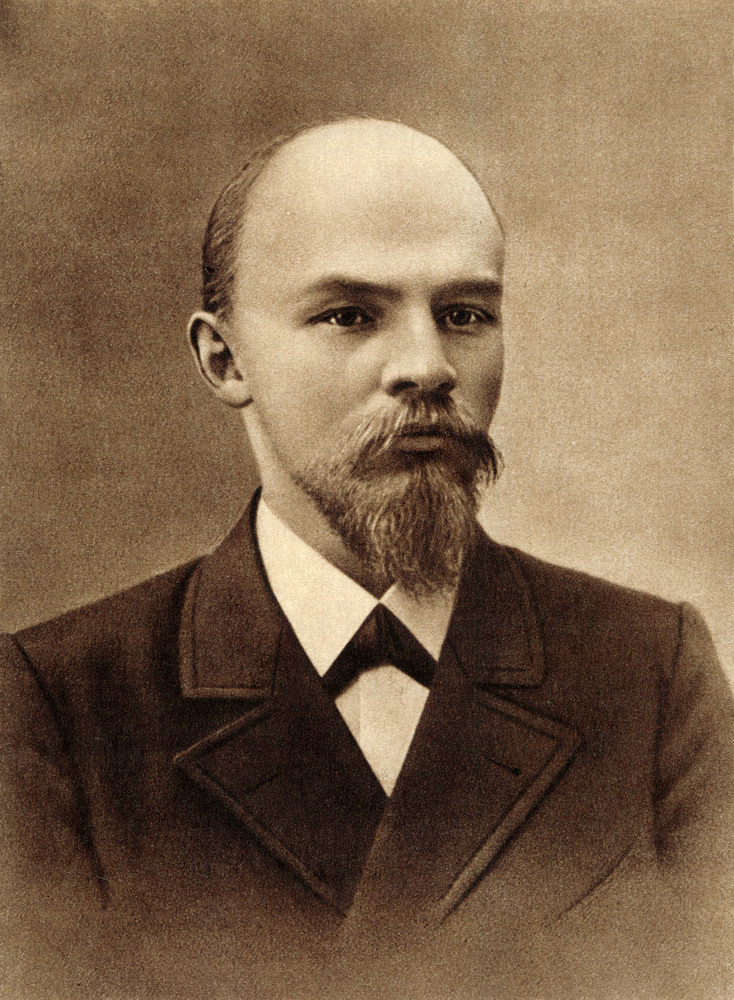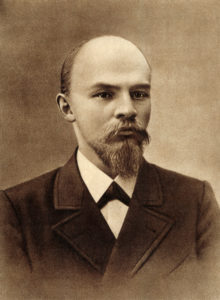

Lenin did more than anyone else to shape the last hundred years. He invented a form of government we have come to call totalitarian, which rejected in principle the idea of any private sphere outside of state control. To establish this power, he invented the one-party state, a term that would previously have seemed self-contradictory since a party was, by definition, a part. An admirer of the French Jacobins, Lenin believed that state power had to be based on sheer terror, and so he also created the terrorist state.
Stephen Pinker has recently argued that the world has been getting less bloodthirsty. The Mongols, after all, destroyed entire cities. But the Mongols murdered other people; what is new, and uniquely horrible about the Soviets and their successors, is that they directed their fury at their own people. The Russian empire lost more people in World War I than any other country, but still more died under Lenin. His war against the peasants, for instance, took more lives than combat between Reds and Whites.
Numbers do not tell the whole story. Under the Third Reich, an ethnic German loyal to the regime did not have to fear arrest, but Lenin pioneered and Stalin greatly expanded a policy in which arrests were entirely arbitrary: that is true terror. By the time of the Great Terror of 1936–38, millions of entirely innocent people were arrested, often by quota. Literally no one was safe. The Party itself was an especially dangerous place to be, and the nkvd was constantly arresting its own members—a practice that was also true of its predecessor, the Cheka, which Lenin founded almost immediately after the Bolshevik coup.
This is from an eye-opening (to me, at least) article by Gary Saul Morson titled “Leninthink.” It’s in The New Criterion, October 2019. The whole thing is worth reading.
I had known that Lenin was one of the most evil people in history. Morson convinced me that he was more evil than I had thought. Morson is the Lawrence B. Dumas Professor of the Arts and Humanities at Northwestern University.
There are two aspects to Lenin’s evil: his absolute willingness to murder innocent people whom he knew to be innocent and his willingness to take a position despite the fact that it contradicted another position he took. The first is obviously more evil than the second. But the second is pretty bad in itself.
Are there any lessons for “normal people” to take out of this, besides the obvious “don’t murder innocent people?” I think there’s one main one that can affect you in your everyday life. If you find yourself agreeing with something because someone on “your side” said it, even though last week you found yourself disagreeing with it because someone on the “other side” said it, that’s a problem. One could even say that there’s a little Lenin inside you. Not a murderer, obviously, but nevertheless someone who doesn’t put a high value on truth.
I remember giving a talk to a local women’s Republican group and getting a lot of positive vibes from my messages about tax cuts and deregulation. I then said that one of the most important principles to follow in politics, if what you really care about is policy, is to not let your judgment be swayed by whether there is a D or an R after the name of a politician promoting a policy. I didn’t get a lot of positive vibes after that statement.
By the way, I was pretty critical of chapter one in Morson’s and c0-author Morton Schapiro’s book Cents and Sensibility.

READER COMMENTS
Alan Goldhammer
Sep 28 2019 at 1:31pm
All of the statistics that I have seen about deaths by country during WWI indicate that Germany suffered the most followed by Russia. I’m somewhat skeptical of the Russian number because of the relatively shorter duration than the war on the Western Front.
While Lenin may have founded the Soviet Union, most of the really bad stuff took place under Stalin. Lenin had a massive stroke in mid-1922 and it’s not clear how much of a role he played in the leadership until his death in 1924. Stalin was vicious in eliminating all the potential rivals.
The major collectivization and embracing of Lysenko took place under Stalin. I don’t mean to lessen the role Lenin played but Stalin’s evil was far worse.
Mark Z
Sep 28 2019 at 11:07pm
True, but Lenin deserves some prominence for the fact that he founded the Soviet Union and paved the way for his successors more than any of them would do for their successors. The moral point aside, Lenin is also perhaps more ‘interesting’ than Stalin, in that he was a true believer who conceived his own ideology; he wrote works that are still read today, and – for better or worse – influenced western thought (e.g., his writing anticipated and influenced the dependency theory of international relations), whereas Stalin seems to have likely just been a self-interested dictator without much in way of sincere beliefs (I could be wrong here, just my impression), and left no intellectual legacy, being disowned by his own people before his body was even cold.
Nick Ronalds
Sep 28 2019 at 1:57pm
That article is highly enlightening because it dispels the commonly held view that the early Bolsheviks were motivated by idealism that was perverted by Stalin. The article makes clear Lenin was as pitiless a killer as Stalin, utterly without conscience. If he hadn’t been in the thrall of a fashionable ideology it would be plain as day to modern readers of history that his behavior was sociopathic, as of course, was Stalin’s.
Mark Brady
Sep 29 2019 at 1:42am
“The Russian empire lost more people in World War I than any other country.”
No. The total number is less than Germany but more than any other combatant nation, but as a proportion of the population it is less than many other states.
https://en.wikipedia.org/wiki/World_War_I_casualties
Patrick
Oct 7 2019 at 10:06am
Your link shows the higher end of Soviet dead or missing estimate (including non combat related deaths) at 2.2 million which is higher than German dead at 2 million.
Julian
Sep 29 2019 at 3:11pm
“Lenin walks around the world.
Frontiers cannot bar him.
Neither barracks nor barricades impede.
Nor does barbed wire scar him.
Lenin walks around the world.
Black, brown, and white receive him.
Language is no barrier.
The strangest tongues believe him.
Lenin walks around the world.
The sun sets like a scar.
Between the darkness and the dawn
There rises a red star.”
– Langston Hughes 😍🙌✊🏼✊🏽✊🏾✊🏿
Mark
Sep 30 2019 at 7:14am
Lenin was not the first to murder his “own people” (nor is it clear to me why this is morally worse than murdering “other people”). The Tsar did so as well against protestors in 1905, and by bringing Russia into World War I (which would have remained a small local dispute between Austria and Serbia had Russia not gotten involved). And the Whites during that era could be just as murderous as the Reds. Although the Reds in Russia killed more people than the Whites, this was more of a function of the fact that they won the civil war—in Finland and Spain where the Whites won the respective civil wars, the Whites killed more innocent people.
If we want to prevent a recurrence of Bolshevism, it would be better to focus on avoiding the conditions that made it possible, in particular the militancy of previous regimes, both in Russia and other European powers, rather than just how evil their leaders were. The pre-Lenin government in Russia was pretty horrible too, and the provisional government of 1917 continued fighting World War I even though Russia was clearly beaten and even launched new offensives. Lenin was the only major political figure who would stop the war (even many other Bolsheviks wanted to keep fighting). Thus, it’s not surprising that most Russians at the time were willing to take a gamble on Lenin.
Mark Z
Sep 30 2019 at 11:12am
Lenin was far more brutal than the Tsar or the Franco regime, and definitely deserves to stand out in history for his brutality even among his despotic peers.
That’s a fair point about the war, but it’s worth remembering that at the time Russia had become rather dependent on allied subsidies. Kerensky was reluctant to leave the war because he feared the loss of those subsidies would cause a greater economic disaster than the war itself; and the treaty of Brest-Latovsk was very unpopular among Russians as gave away huge swaths of land and was a severe national humiliation. Lenin got pretty lucky that the treaty was nullified when the war ended a few months later.
Andrea Mays
Oct 4 2019 at 10:21am
Excellent piece and excellent timing: yesterday, October 3, was the 29th anniversary of the reunification of Germany. I know more about Stalin than about Lenin—Stalin had a longer reign and Stephen Kotkin has written two excellent books (so far) about him—thanks for the reminder that he had a role model in Lenin.
Comments are closed.